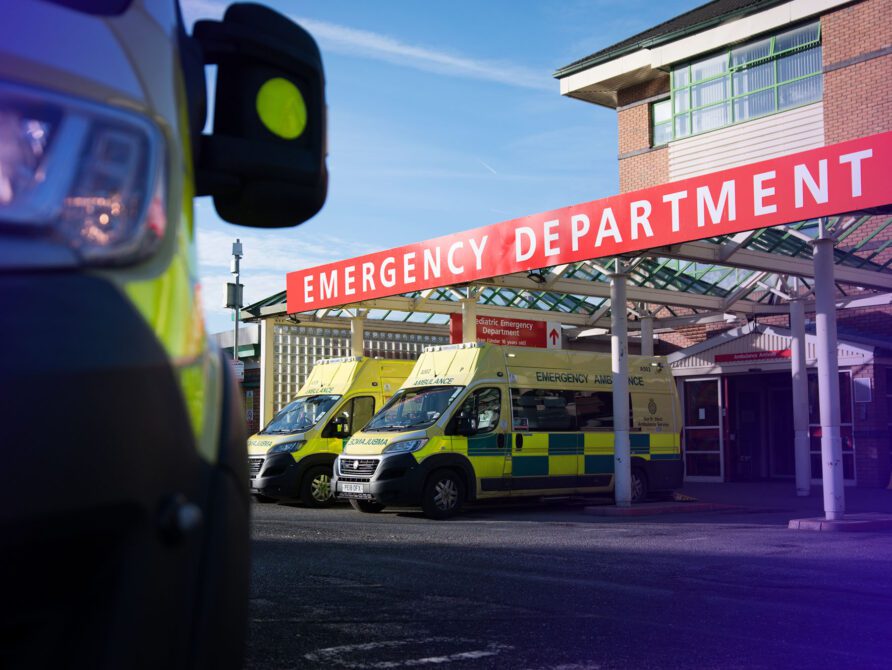Article
EPRs at the heart of urgent and emergency treatment centres: Delivering safer, faster care
On 6 June 2025, NHS England unveiled its commitment to transforming emergency care: the Urgent and Emergency Care Plan 2025/26[1]. Backed by nearly £450 million, the plan is a key part of the government’s wider Plan for Change, focused on modernising NHS services, reducing A&E waiting times, and ensuring patients receive care that is timely, appropriate and safe.
As Sarah-Jane Marsh, NHS National Director for Urgent and Emergency Care, rightly stated:
“It is vital that patients can access our urgent and emergency care services in the right place at the right time, and that the care provided is to a standard we would want for ourselves and our own families.”
At Altera Digital Health, we wholeheartedly agree, and we believe that Electronic Patient Records (EPRs) are essential to making this vision a reality.
A new model for urgent and emergency care
 By 2026, the Plan proposes the opening of 40 new urgent treatment and same-day emergency care centres, alongside 15 dedicated mental health crisis assessment centres. Nearly 500 new ambulances are also planned to be deployed to improve response times and reduce delays in patient handovers.
By 2026, the Plan proposes the opening of 40 new urgent treatment and same-day emergency care centres, alongside 15 dedicated mental health crisis assessment centres. Nearly 500 new ambulances are also planned to be deployed to improve response times and reduce delays in patient handovers.
This shift is about moving care closer to home, reducing the burden on hospital emergency departments and delivering the right care in the right place. Urgent Treatment Centres (UTCs), for example, are designed to treat and discharge patients on the same day, helping avoid unnecessary hospital attendances and keeping more ambulances available for critical emergencies.
But for these services to function effectively, clinicians need quick access to reliable, up-to-date patient information—wherever the patient presents.
The role of EPRs in urgent and emergency settings
EPRs are essential to making this work. They give clinicians a comprehensive view of the patient’s medical history, medications, allergies and past interventions, all at the point of care. Whether the patient arrives by ambulance, walks into a UTC or is later referred to another service, that continuity of information means better, safer and faster decisions.
EPRs also reduce the need to repeat tests, help avoid conflicting treatment plans and support safer prescribing. With this visibility, care teams can plan for safe same-day discharges—a key ambition of the new care model, while improving overall flow and reducing pressure on hospital beds.
Real-world impact
At Altera, we’re already seeing how digital solutions like Sunrise™ EPR are making a difference in urgent and emergency settings. For example, one client is using Sunrise EPR to support Senior Clinician Rapid Triage in Gloucester ED, the process where a senior clinician reviews the patient on arrival to the department. This streamlines triage, supports rapid diagnostics and reduces delays in decision-making, even in the busiest environments. This will be a key aspect of meeting the increasing pressures of off-loading patients within the suggested 30-minute target.
The pressure on emergency services is immense. EPRs give clinicians the insight they need to act quickly and with confidence. It’s about getting patients the right care, in the right place, the first time.
“The pressure on emergency services is immense. EPRs give clinicians the insight they need to act quickly and with confidence. It’s about getting patients the right care, in the right place, the first time,”
says Constantin Jabarin, CCIO at Altera Digital Health and A&E doctor
Building the digital foundation for change
The 2025/26 plan marks an important step forward for urgent and emergency care in England. But new centres and expanded services will only go so far without the right digital infrastructure in place. EPRs aren’t just IT systems, they’re clinical tools that help frontline teams deliver safer, quicker and more joined-up care. In fact, with AI integration, they will become clinical partners.
At Altera, we’re working closely with NHS partners to make sure the digital side of this transformation keeps pace. Because when clinicians have the information they need, patients get the care they deserve, without delay, in the right setting.
To learn more about Altera’s Sunrise EPR, please click here.
[1] https://www.england.nhs.uk/long-read/urgent-and-emergency-care-plan-2025-26/













